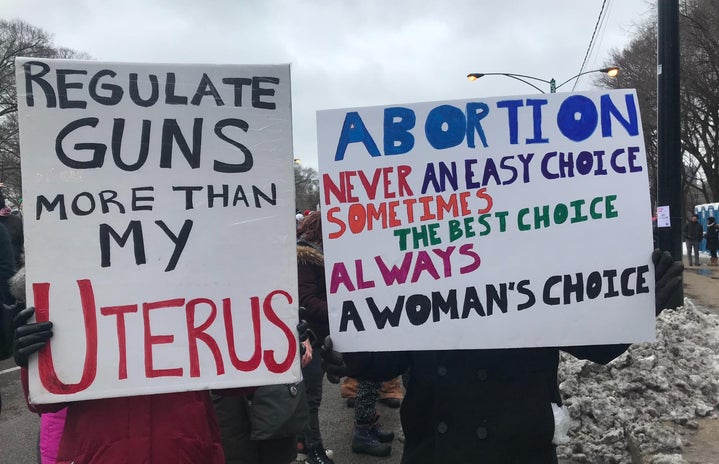On September 1st, an extremely restrictive ban on abortion went into effect in the state of Texas. In addition to outlawing abortion at six weeks (before most even suspect pregnancy), it is also now permissible to fine anyone involved in helping somebody obtain an abortion. This could be the one seeking it, a doctor suggesting it or even a driver bringing someone to an abortion clinic. The law also makes no exceptions in cases of rape or incest. The United States Supreme Court voted to uphold this law in a five-four decision, with the three liberal justices and Chief Justice John Roberts dissenting. Since the tragic loss of Justice Ruth Bader Ginsburg last year, the court has been ruling with a conservative majority, and this decision is a stark reminder.
This new restriction on abortion is horrifying in several respects. First of all, it completely disregards Roe v. Wade, the landmark Supreme Court case that defined a woman’s right to choose as constitutional. Abortion is defined under United States law as a woman’s choice, and yet the Texas state government has worked to deny that right. Secondly, this new law disproportionately affects low-income communities, people of color and transgender and nonbinary individuals. A woman of means could easily travel to another state to get an abortion, but other women do not have that same privilege. Women of color surpass white women in abortion statistics, making them a target of these backwards regulations. Furthermore, denying abortions for people who do not identify as women but are still able to get pregnant can foster feelings of gender dysphoria.
Public outcry against this law has been widespread. Men and women alike have denounced how this law is a massive step backwards for reproductive freedom. Many feminists, Texas natives or not, feel that this is a vicious attack on women everywhere and will only cause unsafe terminations of pregnancy. But amidst this fury, there have been certain measures taken to fight these new limitations. The Lilith Fund is raising money to provide poor abortion seekers with the ability to travel elsewhere for them. Additionally, Lyft and Uber have pledged to pay the legal fees of their drivers who may be sued for transporting a passenger to get an abortion. These measures prove that if the Texan government does not want to allow reproductive freedom, others will fight to make it possible.


